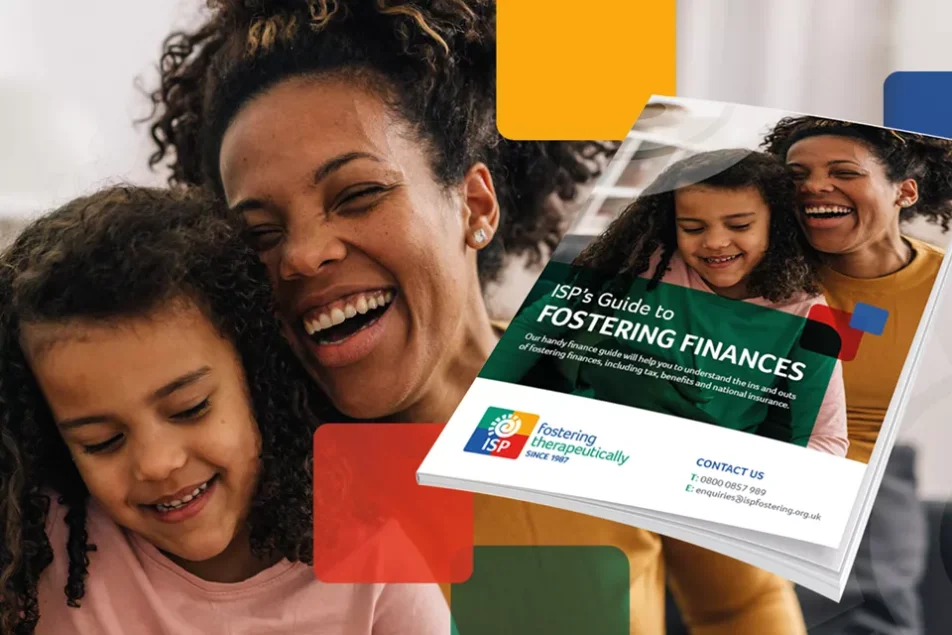
Foster carers tax allowance
Foster parents receive an £19,690 tax allowance on their annual fostering income, plus an additional weekly tax relief for each child in their care – known as Qualifying Care Relief – meaning that they can receive payments up to a certain amount, completely tax-free. This tax relief is also available for respite, staying put care and parent and child placements.
Foster carer tax relief
Qualifying Care Relief is deducted from your overall income, which includes your weekly fostering allowance, and is made up of two parts:
A fixed amount of £19,690 for each household for a full year
A weekly tax relief allowance for each child in your care:
a. £415 for children aged under 11
b. £495 for children aged 11 or over
The balance after your Qualifying Care Relief and any additional expenses have been deducted, represents your taxable income.
The weekly fostering tax allowance runs from Monday to Sunday. So, if a child stays with you for 1 night, you’ll be entitled to 1 week of tax relief. If the child comes to you on Saturday and leaves on Tuesday, you’re entitled to 2 weeks of tax relief. Make sure you keep a record of the days in which children arrive and leave from your care and submit correctly on your tax return.
If you’ve been fostering for less than a year or there’s more than one foster parent in your household, read this guidance around how the fixed amount works.
Do foster parents pay tax?
Whether you pay tax will depend on several factors, including the number of children you have in placement, the type of placement and whether you receive enhanced fees, and whether you receive any other income aside from fostering.
However, in general, if you’re caring for 1 child and do not have any other source of income, the Qualifying Care Relief should be higher than the income received and therefore you will not pay tax.

Foster care tax examples
Jo cares for one young person (aged 13) as a long-term placement and has cared for him for a full tax year.
- Jo receives £35,792 from ISP
- Qualifying care relief: £19,690
- Foster carer tax relief (£495 per week for over 11’s): £25,740
- Total tax relief: £45,430
Jo receives £35,792 in fostering payments from ISP and will pay no tax.
Tim cares for two young people (aged 7 and 12), both as long-term placements and has cared for them for a full tax year.
- Tim receives £64,455 from ISP
- Qualifying care relief: £19,690
- Tax relief for the 7-year-old (£405 x 52): £21,580
- Tax relief for the 12-year-old (£485 x 52): £25,740
- Total tax relief: £67,010
Tim receives £64,455 in fostering payments from ISP, which he won’t pay tax on. Foster parents will also have their Personal Allowance, which may make this income completely tax-free.
Frequently asked questions
Will I be employed by ISP or self-employed?
Foster carers are classed as self-employed and so you’ll, therefore, need to register as self-employed with HMRC and submit a tax return – also known as a self-assessment – every year while fostering.
While income from fostering is taxable, there are specialist tax rules that mean that you can earn up to a certain amount, absolutely tax-free.
Fostering allowances vary from agency to agency, and even local authority. Our foster parents receive a generous allowance, starting at £547 per week (higher rates within London to reflect the higher cost of living) and increasing up to £688 per week through the completion of additional training and experience.
In addition, they also receive other allowances for holidays and Summer activities, as well as access to hundreds of discounts for big-name brands, such as Asda, John Lewis, Costa, New Look and more, via our foster parent reward platform, The Exchange.
The fostering allowance isn’t counted towards your income, therefore will not affect your eligibility to receive child tax credits or any other means-tested benefit.
However, child tax credits can only be claimed for your own children and not for any child within your care.
Speak to our team today
Whether you’re looking for more information or you’re ready to apply, we’re here to help you on your journey.
Enquiry Form
The company takes the requirements of GDPR seriously in ensuring the privacy and lawful processing of personal data provided to us by you. Please view our privacy notice which explains how the company will manage and use your personal data. This site is protected by reCAPTCHA and the Google Privacy Policy and Terms of Service apply.
